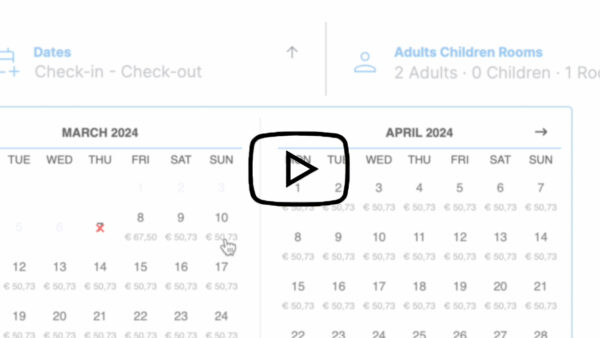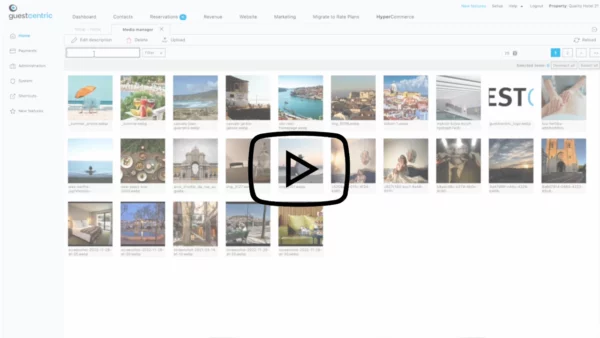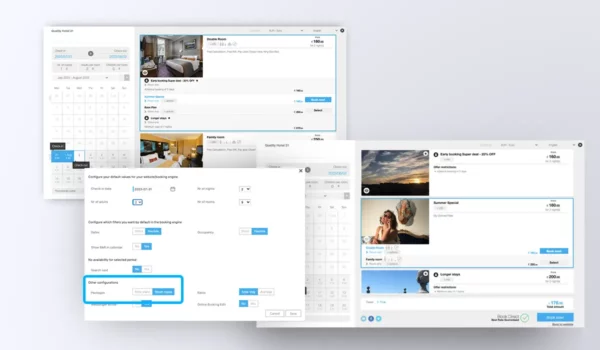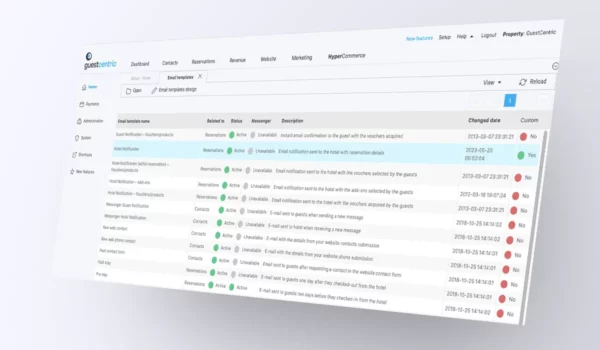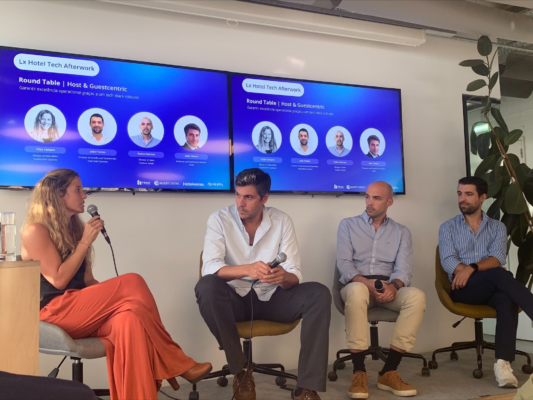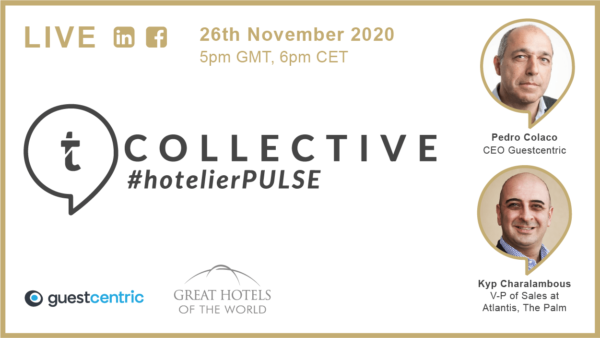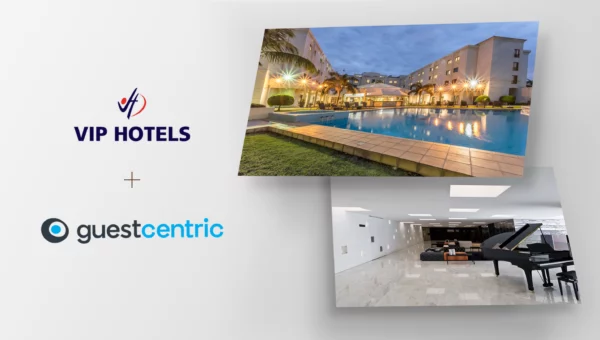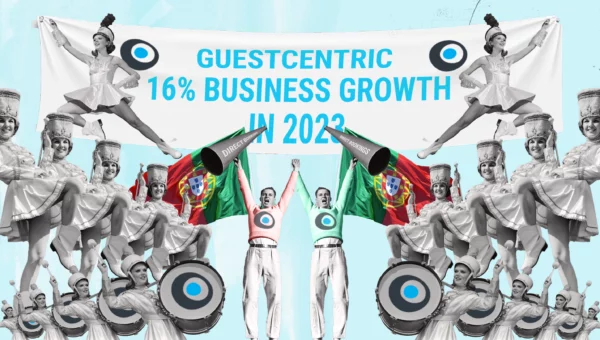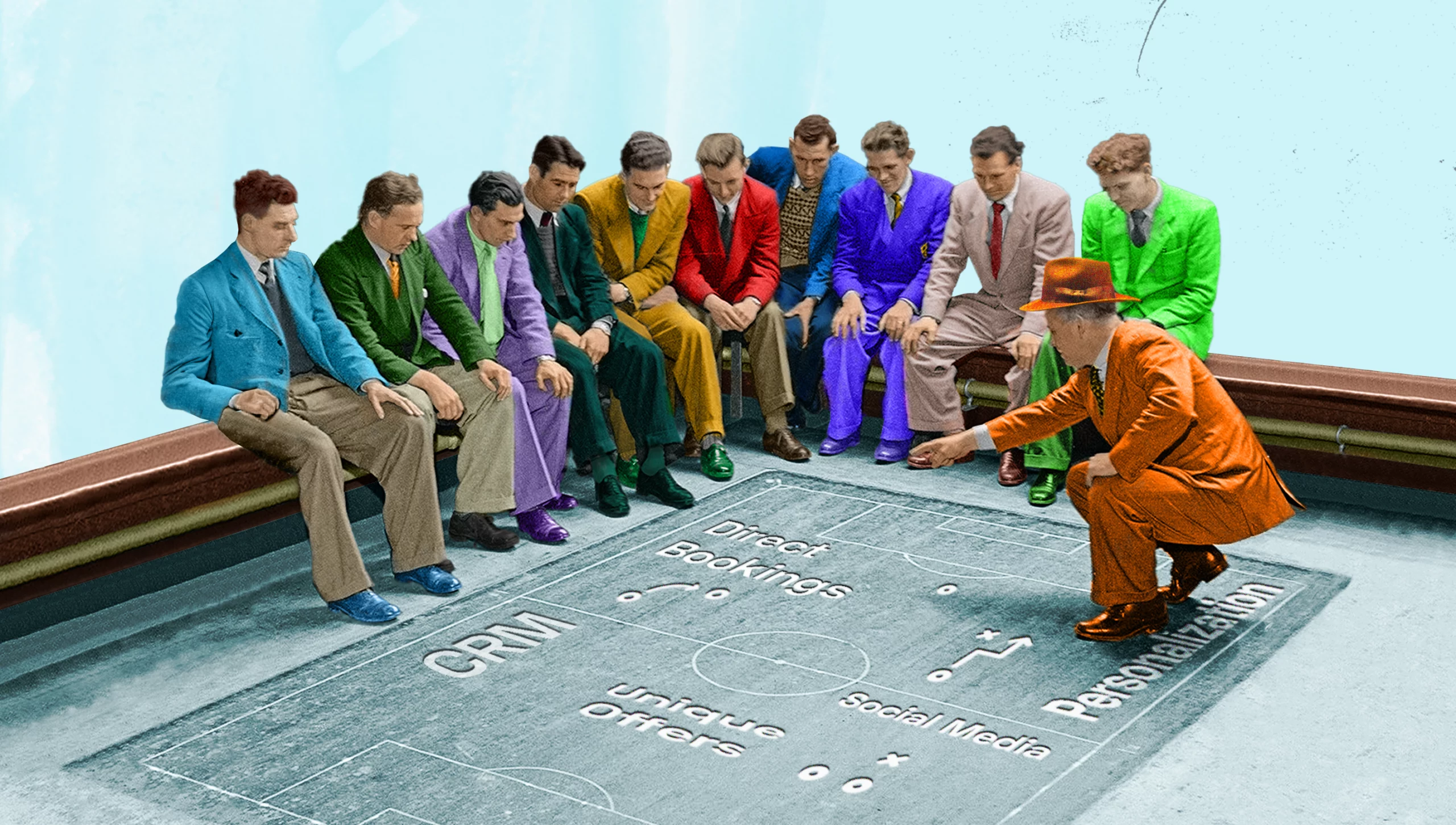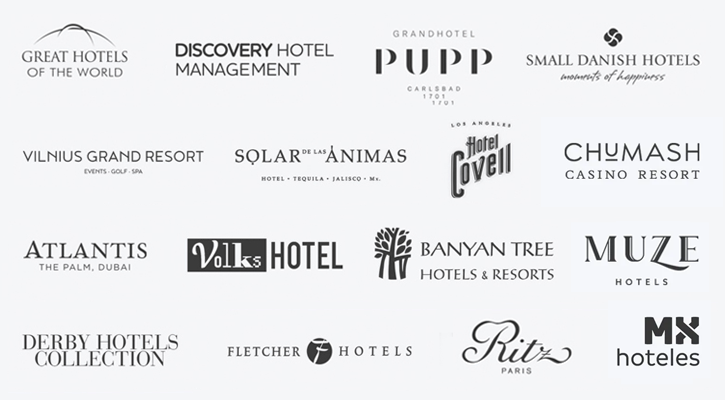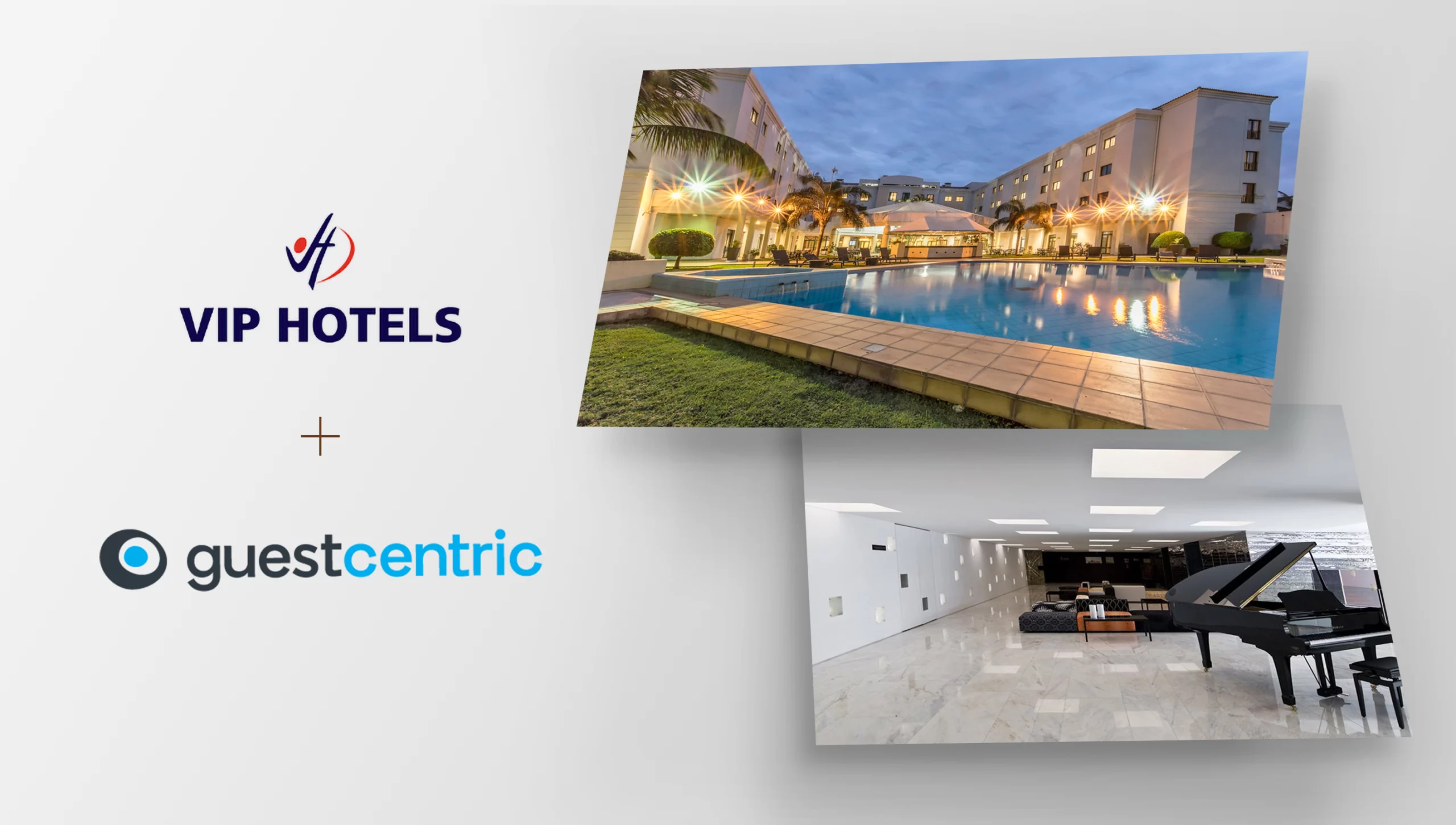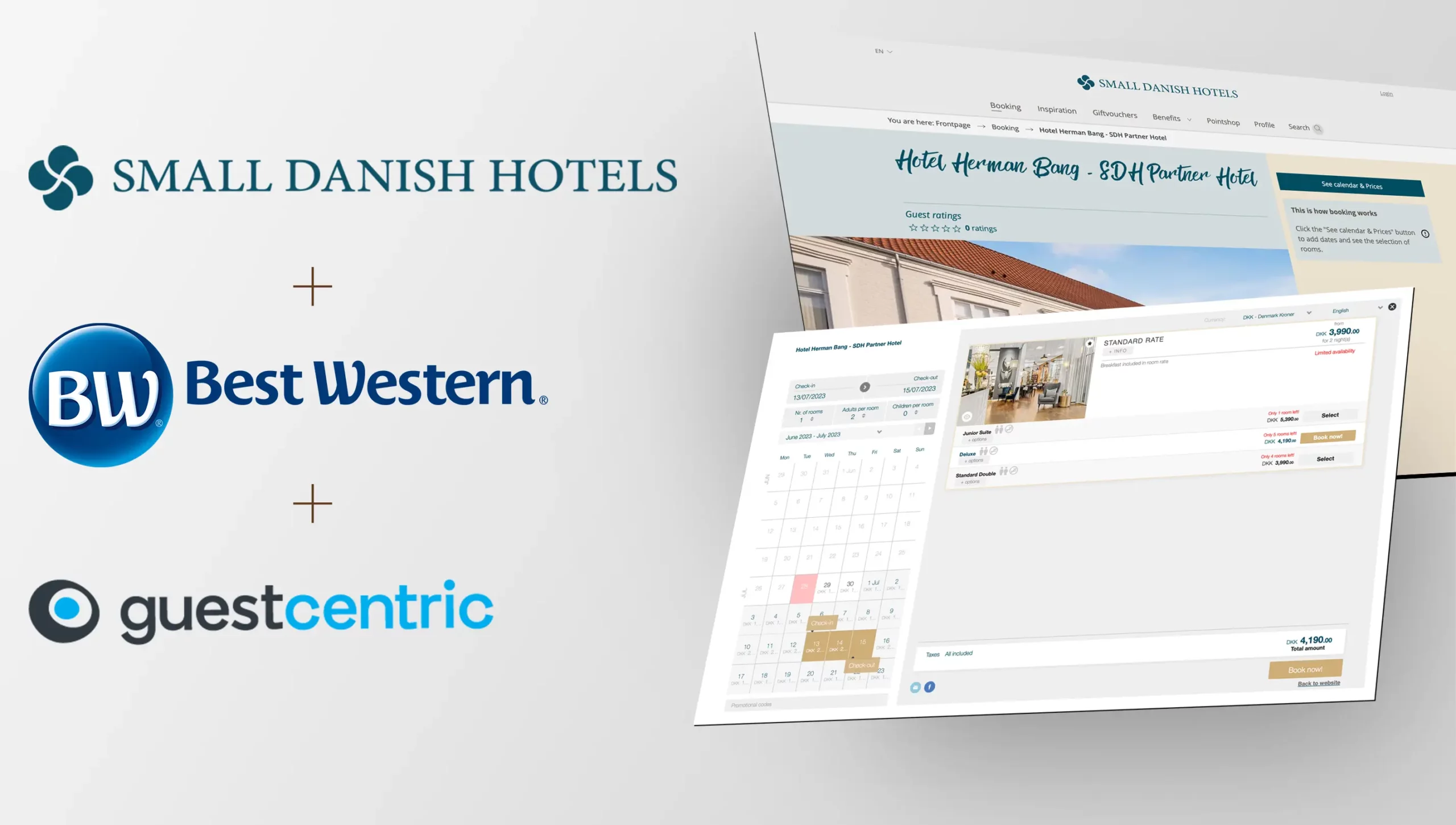5 Hotel Digital Marketing Strategies to Boost Direct Bookings
Reading Time: 5 minutesHotel digital marketing strategies are crucial to grow direct bookings reduce dependency on intermediaries. As consumer attention spans dwindle and behaviors shift towards a more personalized booking experience, hotels are tasked with not only managing day-to-day operations but also standing out in a crowded digital landscape.
Recent studies indicate that a significant majority of travelers prefer personalized experiences during their travel journey. A report by Travel Daily News in 2023 revealed that 85% of travelers are more likely to book with hotels that offer personalized experiences from the research phase to post-stay. This highlights the importance of hotels adopting digital marketing strategies that cater to individual guest preferences.
Why a Digital Marketing Strategy is Vital for Hotels
Online Travel Agencies (OTAs) continue to generate a large chunk of bookings (nearly 70%, according to a recent market research report). Combine this reality with dwindling consumer attention spans (highlighted in a recent study by the Max Planck Institute, Technical University of Berlin, Technical University of Denmark, and University College), and it’s easy to see how hotels face increasing challenges in capturing and maintaining guest interest.
These factors necessitate a robust and comprehensive digital marketing strategy that enables hotels to engage potential guests early in the booking funnel. By effectively deploying storytelling and personalized experiences on their websites and other digital platforms, hotels can capture the fleeting attention of consumers. This approach not only fosters initial interest but also nurtures it through to the booking stage, ensuring that hotels remain competitive in a landscape where guests are quickly distracted and often overwhelmed by choices.
At the heart of a successful digital marketing strategy is a broad spectrum of tactics aimed at amplifying your hotel’s digital footprint and driving direct bookings. From fine-tuning your website and booking process to leveraging the power of social media platforms like Instagram and Facebook, each step is crucial for capturing guest interest right from the start and across each stage of their journey from search to post-stay.
Below is a deep dive into the customer’s mindset, broken down into five pivotal phases:
- Dreaming Stage: Guests daydream about their ideal getaway without a clear destination in mind.
- Planning Stage: With a vision in place, guests look for specific details like rooms, rates, and special offers.
- Booking Stage: Guests are ready to make their dream vacation a reality and proceed to book.
- Experiencing Stage: The journey begins on your website and, depending on how captivating their experience is, either concludes at the booking engine or extends to their actual stay.
- Sharing Stage: Post-stay, if guests are thrilled, they become your champions, spreading the word about their amazing stay through reviews, social media, and word-of-mouth.
Recognizing and nurturing these stages within your digital marketing approach is pivotal. By categorizing your strategy into three core areas—Guest Engagement Marketing, Guest Acquisition Marketing, and Guest Retention Marketing—you can rekindle the connection with tech-savvy travelers at every point of their journey, securing those all-important direct bookings, reducing reliance on OTAs, and ultimately, trimming down distribution costs.
Here are 5 digital marketing strategies for hotels to get more Direct Bookings
1. Ensure Your Hotel Website and Booking Engine seamlessly work together as a Direct Sales Machine
Your hotel’s website is often the first point of contact with potential guests. Therefore, you must ensure that it not only captures the attention of online visitors as soon as they land, but also that it’s straightforward to navigate and facilitates a seamless browsing and booking experience. Below is a checklist you should follow:
- Visual Appeal and Easy Navigation: Use high-quality images and a clean layout to make a strong first impression. Navigation should be intuitive, allowing visitors to find information quickly and easily.
- Comprehensive Information: Provide detailed descriptions of your amenities, services, and room options. Include information about local attractions and the unique benefits of staying at your hotel.
- Branding and Storytelling: Incorporate your brand’s voice and ethos throughout the site. Tell the story of your hotel and what makes it unique to create an emotional connection with visitors. This could include your hotel’s history, the inspiration behind its design, or stories about the staff. Strong branding and storytelling can differentiate your hotel from competitors and encourage direct bookings.
- Optimized Booking Engine: Ensure that the booking process is straightforward and user-friendly. Integrate features like real-time availability checks, quick loading times, and various payment options. Highlight exclusive offers and benefits available only to guests who book directly through your website.
By focusing on these areas, your hotel’s website will not only attract visitors but also convert them into bookings by offering a compelling, secure, and user-friendly experience that aligns with your brand’s story and values.
2. Differentiate Your Hotel with Unique Offers and Incentivise Guests to Book Direct
Stand out by offering unique, direct-booking advantages. This could be exclusive room upgrades, personalized amenities, or special rates for returning guests. For example, you might offer a free spa service for guests who book directly, or provide exclusive access to a new restaurant or event held at the hotel. Promote these offers aggressively through your digital channels, emphasizing the perks that only direct bookers receive, like late check-out or early check-in, to underline the benefits of booking directly with your hotel.
3. Leverage Customer Relationship Management (CRM) for Personalized Guest Experiences
A robust CRM system allows hotels to gather and analyze guest data, enabling personalized communication and offers. For example, if your CRM identifies a returning guest who has previously enjoyed your spa services, you could send them a personalized email offering a special package that includes a spa treatment during their next stay. By understanding guest preferences, past behaviors, and spending patterns, hotels can tailor their messaging and promotions to meet individual needs. This level of personalization not only enhances the guest experience but also boosts the likelihood of direct bookings and loyalty.
4. Engage with Guests Across Social Media Platforms
Social media platforms are invaluable for connecting with potential and returning guests. Share engaging content that highlights your hotel’s unique features, guest experiences, and special offers. For example, create Instagram stories showcasing a day in the life at your hotel, or use Facebook Live to give a virtual tour of new amenities. Regularly engaging with your audience on these platforms can build a community around your brand, foster relationships, and drive direct bookings. Additionally, encouraging guests to share their own content with a custom hashtag can amplify your reach and attract new customers.
5. Embrace the HyperCommerce Revolution
To truly reach guests earlier in the funnel and personalize their experiences based on their preferences, it’s crucial that hotels implement a comprehensive HyperCommerce strategy that integrates sales, marketing, and revenue management functions seamlessly. This ensures that all teams – from sales, to marketing, and revenue management etc – have access to the same up-to-date information about guests, enabling a coordinated effort in delivering personalized services and offers. Such a cohesive approach not only improves operational efficiency but also elevates the guest experience, encouraging loyalty and repeat bookings.
By aligning marketing strategies with revenue insights—such as identifying peak demand periods or undersold dates—hotels can tailor campaigns that are not only timely but also aligned with financial goals, ensuring efficient marketing spend and maximized return on investment. If revenue data signals a dip in bookings, marketing can immediately respond with targeted promotions communicated through optimized rates, encouraging bookings and loyalty. This level of personalization makes guests feel valued, significantly boosting satisfaction and fostering repeat visits, which enhances overall brand reputation and profitability in a competitive market.
Conclusion
By integrating sales, marketing, and revenue management, hotels can ensure that all teams are aligned with the latest guest data and market trends. This connectivity allows for a seamless exchange of information, facilitating a more dynamic and responsive approach to guest engagement and pricing strategies. It empowers hotels to not only personalize guest experiences at every touchpoint but also optimize their revenue potential through smarter, data-driven decisions.
This strategic alignment across all commercial teams enhances the ability to attract direct bookings, effectively reducing dependency on intermediaries and maximizing profitability. Hotels that adopt this holistic approach will not only see an increase in direct bookings but will also build stronger relationships with their guests, leading to higher satisfaction and repeat business. In essence, the convergence of marketing efforts and commercial strategy through HyperCommerce is not just a tactical move—it’s a critical strategic initiative that propels hotels towards greater success in a digitally dominated future.


